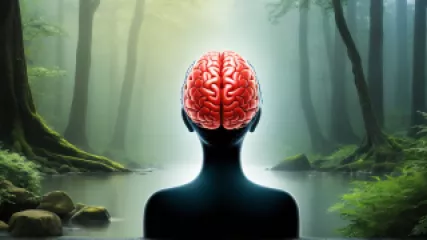The Science of Adult Emotional Regulation: A Research Summary
The Science of Adult Emotional Regulation: A Research Summary
Emotional regulation, the ability to manage and control our emotional responses, is a crucial skill that plays a vital role in our personal and professional lives. As adults, we often face a multitude of challenges that require us to navigate complex emotional landscapes. Understanding the science behind emotional regulation can provide valuable insights into how we can develop and enhance this critical capacity.
Defining Emotional Regulation
Emotional regulation refers to the processes by which individuals influence the experience and expression of their emotions. This includes strategies such as cognitive reappraisal, where individuals reframe a situation to alter their emotional response, and suppression, where individuals inhibit the outward expression of their emotions.
According to Daniel Lopez, a leading researcher in the field of emotional regulation, "Emotional regulation is not about simply suppressing or avoiding emotions. It's about developing a nuanced understanding of our emotional experiences and finding healthy ways to manage them."
The Neuroscience of Emotional Regulation
The neural mechanisms underlying emotional regulation have been the subject of extensive research. Camila Taylor, a neuroscientist at the University of California, explains, "Emotional regulation involves a complex interplay between the limbic system, which is responsible for processing emotions, and the prefrontal cortex, which is involved in higher-order cognitive functions, such as decision-making and impulse control."
Studies have shown that when individuals engage in effective emotional regulation, they exhibit increased activity in the prefrontal cortex and decreased activity in the amygdala, the brain region associated with the experience of intense emotions. This suggests that the prefrontal cortex plays a crucial role in modulating the emotional responses generated by the limbic system.
Developmental Aspects of Emotional Regulation
Emotional regulation is a skill that evolves throughout the lifespan. Emery Foster, a developmental psychologist, notes, "Emotional regulation abilities begin to emerge in early childhood and continue to develop well into adulthood, with significant improvements occurring during adolescence and young adulthood."
During childhood, children rely heavily on external sources, such as caregivers, to help them regulate their emotions. As they grow older, they gradually develop the cognitive and behavioral skills necessary to regulate their emotions more independently. However, emotional regulation can continue to be a challenge for many adults, particularly during times of stress or significant life transitions.
Individual Differences in Emotional Regulation
The ability to regulate emotions can vary considerably among individuals. Factors such as genetic predisposition, early life experiences, and personality traits can all influence an individual's emotional regulation capabilities.
For example, individuals with higher levels of neuroticism, a personality trait characterized by a tendency to experience negative emotions, may struggle more with emotional regulation compared to those with lower levels of neuroticism. Similarly, individuals who have experienced childhood trauma or adverse life events may face additional challenges in developing effective emotional regulation strategies.
Strategies for Enhancing Emotional Regulation
Fortunately, emotional regulation is a skill that can be learned and improved through various evidence-based strategies. Edwin Anderson, a clinical psychologist, highlights some of the most effective techniques:
Cognitive Reappraisal
Cognitive reappraisal involves reframing a situation or emotion in a more positive or adaptive way. For example, instead of catastrophizing about a stressful situation, an individual might reframe it as a challenge to be overcome, which can lead to a more constructive emotional response.
Mindfulness and Acceptance
Mindfulness-based practices, such as meditation and breathwork, can help individuals become more aware of their emotional experiences and respond to them with greater acceptance and non-judgment. This can prevent the escalation of negative emotions and promote a more balanced emotional state.
Emotion Labeling
Labeling and articulating our emotions can help us better understand and regulate them. Research has shown that engaging in emotion labeling can activate the prefrontal cortex, leading to a reduction in the intensity of the emotional experience.
Behavioral Strategies
Behavioral strategies, such as engaging in physical exercise, deep breathing, or relaxation techniques, can help individuals manage their emotional responses by directly addressing the physiological arousal associated with strong emotions.
The Impact of Emotional Regulation on Well-being
The ability to effectively regulate our emotions has a profound impact on various aspects of our well-being, including mental health, physical health, and social functioning.
Mental Health
Emotional regulation difficulties have been linked to a range of mental health issues, such as depression, anxiety, and substance abuse. Individuals who struggle with emotional regulation are more prone to experiencing and expressing intense negative emotions, which can contribute to the development and maintenance of these disorders.
Physical Health
Chronic stress and the inability to regulate emotions can have detrimental effects on physical health, including increased risk of cardiovascular disease, weakened immune system, and various other health problems. Effective emotional regulation, on the other hand, has been associated with better physical health outcomes.
Social Functioning
Emotional regulation plays a crucial role in our social interactions and relationships. Individuals with strong emotional regulation skills are better able to navigate social situations, express their emotions appropriately, and build and maintain healthy interpersonal connections.
Conclusion
Emotional regulation is a complex and multifaceted construct that has profound implications for our overall well-being. Understanding the science behind emotional regulation, including its neural underpinnings and developmental aspects, can help us develop more effective strategies for managing our emotions and enhancing our quality of life.
By incorporating evidence-based techniques, such as cognitive reappraisal, mindfulness, and behavioral strategies, individuals can work towards becoming more emotionally resilient and adaptable. Ultimately, the ability to regulate our emotions is a valuable skill that can contribute to our personal growth, mental and physical health, and social interactions.
In conclusion, the science of adult emotional regulation is a rapidly evolving field that offers valuable insights into how we can enhance our emotional well-being. By understanding the neural mechanisms, developmental aspects, and individual differences in emotional regulation, we can empower ourselves and others to develop more effective strategies for managing our emotions and achieving greater overall well-being.






